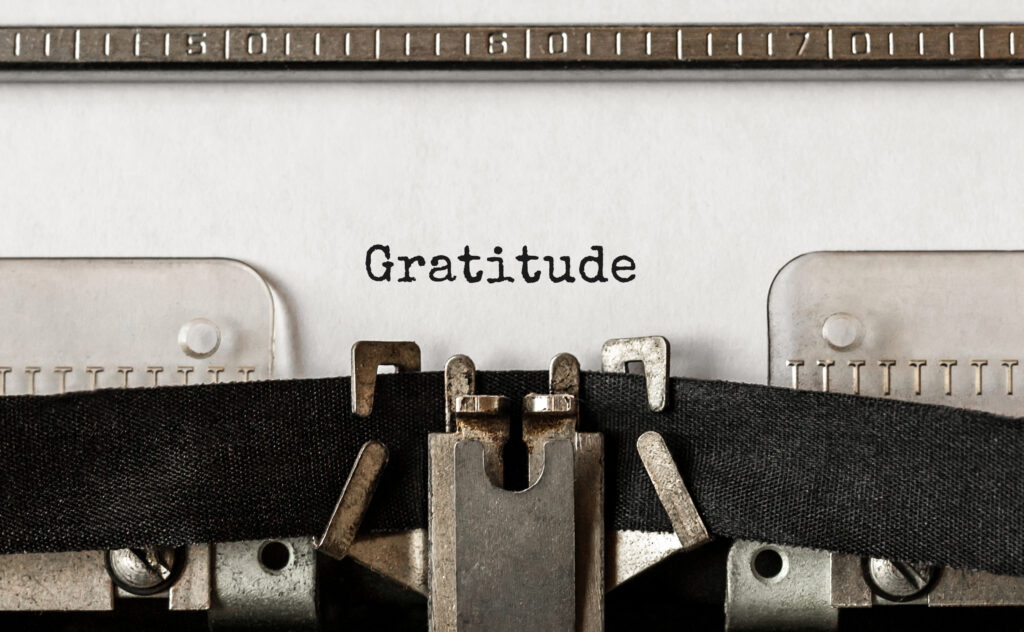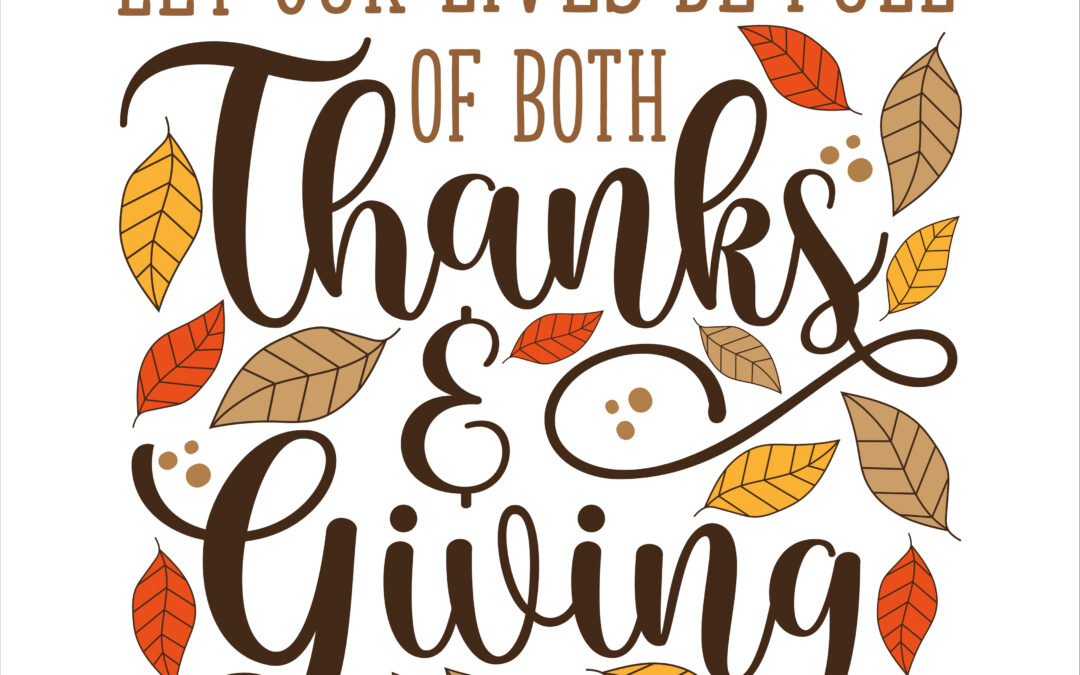To the friends of United Families International:
Today is “Giving Tuesday.” The day when non-profits approach their supporters for funding to keep their organizations functioning. When I think of this day, two things come to mind – not only “giving,” but “gratitude.”
First, giving
Yes, we need and welcome whatever funds you feel you can share with us to keep our pro-family and pro-life efforts moving forward! It is necessary and important work and we at United Families International hope we have earned your support.
But, I am always reminded, the most pro-family thing individuals can do is commit themselves to one spouse and together provide for, teach, and love their children. That is, by definition, “pro-family.” I realize that so many of you are doing exactly that! You are giving your best to your marriage and to your family, every day. We honor you. We express gratitude to you for the gift you’re giving to your children and for many of you, your grandchildren. You are the backbone of the pro-family movement!
Next, gratitude
Last week, several countries celebrated “Thanksgiving.” If you were in one of those countries, perhaps your thoughts were a little more focused on gratitude. Mine certainly were and the longer I live, the more convinced I become that Cicero was right, “Gratitude is not only the greatest of all virtues, but the parent of all others.” Gratitude seems to be the antidote for many of the problems that plague mankind. Turns out feeling grateful can positively affect our lives, health, and psychological/emotional well-being. Research continues to accumulate showing the positive benefits of operating your life from a place of gratitude. Here are some examples:
- Levels of gratitude correlate to better moods and less fatigue and inflammation, reducing the risk of heart failure, even for those who are susceptible. Paul J. Mills, et.al. (2015) The Role of Gratitude in Spiritual Well-Being in Asymptomatic Heart Failure Patients, Spirituality in Clinical Practice, 2(1), 1-15.
- Feeling and expressing gratitude significantly predicted marital happiness among long-term married couples. Gordon, C. L., Arnette, R. M., & Smith, R. E. (2011). Have you thanked your spouse today?: Felt and expressed gratitude among married couples. Personality And Individual Differences, 50(3), 339-343.
- Grateful students reported higher grades, more life satisfaction, better social integration and less envy and depression than their peers who were less thankful and more materialistic. Additionally, feelings of gratitude had a more powerful impact on the students’ lives overall than materialism. Froh, Jeffrey J., et.al. (2011) Gratitude in Adolescence: An Understudied Virtue. Journal of Happiness Studies.
- The emotion of gratitude supports a positive and supportive attitude toward others and a feeling of relief from stressors. Glenn R. Fox, Jonas Kaplan, Hanna Damasio, Antonio Damasio, (2015) Neural correlates of gratitude, Frontiers in Psychology, Volume 6.
We’ve compiled a more complete list of research related to gratitude. Please see it at the end of this Update. Hang on to it; it might just come in handy!
In conclusion
Let me close with another quote; this time from Aldous Huxley: “Most human beings have an almost infinite capacity for taking things for granted.” But we want you to know, we don’t take you for granted! We need you and your day-to-day pro-family work. We also recognize that every dollar you might donate to United Families comes from a place of sacrifice. We recommit, on this Giving Tuesday, to use your donated dollars wisely and direct you to our website to see where some of your dollar are being put to work.
Please remember us on this Giving Tuesday,
Wendy Wixom, President
United Families International
The Science of Gratitude

Text Gratitude typed on retro typewriter,stock image
- Levels of gratitude correlate to better moods and less fatigue and inflammation, reducing the risk of heart failure, even for those who are susceptible. Paul J. Mills, et.al. (2015) The Role of Gratitude in Spiritual Well-Being in Asymptomatic Heart Failure Patients, Spirituality in Clinical Practice, 2(1), 1-15.
- Gratitude is associated with higher satisfaction with life and lower materialism. Lambert, N. M., Fincham, F. D., Stillman, T. F., & Dean, L. R. (2009). More gratitude, less materialism: The mediating role of life satisfaction. The Journal of Positive Psychology, 4(1), 32-42.
- Grateful students reported higher grades, more life satisfaction, better social integration and less envy and depression than their peers who were less thankful and more materialistic. Additionally, feelings of gratitude had a more powerful impact on the students’ lives overall than materialism. Froh, Jeffrey J., et.al. (2011) Gratitude in Adolescence: An Understudied Virtue. Journal of Happiness Studies.
- In adolescents, feelings of gratitude have shown an inverse correlation with bullying victimization and suicide risk.Lourdes Rey, et.al., (2019) Being Bullied at School: Gratitude as Potential Protective Factor for Suicide Risk in Adolescents, Frontiers in Psychology, Volume 10.
- Gratitude affects brain function on a chemical level and its practice promotes feelings of self-worth and compassion for others. Nathaniel M. Lambert, Steven M. Graham, Frank D. Fincham, (2009) A Prototype Analysis of Gratitude: Varieties of Gratitude Experiences, Society for Personality and Social Psychology, 35(9).
- The emotion of gratitude supports a positive and supportive attitude toward others and a feeling of relief from stressors. Glenn R. Fox, Jonas Kaplan, Hanna Damasio, Antonio Damasio, (2015) Neural correlates of gratitude, Frontiers in Psychology, Volume 6.
- Those who kept gratitude journals on a weekly basis exercised more regularly, reported fewer physical symptoms, had fewer health complaints, felt better about their lives as a whole, and were more optimistic about the upcoming week compared to those who recorded hassles or neutral life events. Emmons, R. A., McCullough, M. A. (2003) Counting Blessings versus Burdens: An Experimental Investigation of Gratitude and Subjective Well-Being in Daily Life. Journal of Personality and Social Psychology, 84(2), 377-389.
- “[F]amilies who are able to redefine a stressor event more positively appear to be better able to cope and adapt.” Price, S.J., Price, C.A., McKenry, P.C., (2010). Families & Change, Coping with Stressful Events and Transitions. Thousand Oaks, CA: SAGE pubemmlications, Inc
- In a sample of adults with neuromuscular disease, a 21-day gratitude intervention resulted in greater amounts of high energy positive moods, a greater sense of feeling connected to others, more optimistic ratings of one’s life, and better sleep duration and sleep quality, relative to a control group. Emmons, R. A., et. al. (2003), Dimensions and Perspectives of Gratitude. University of California, Davis.
- “An attitude of gratitude is related to better mood and sleep, less fatigue, more self-efficacy, and a lower cellular inflammatory index.” Paul J. Mills, et.al. (2015) The Role of Gratitude in Spiritual Well-Being in Asymptomatic Heart Failure Patients, Spirituality in Clinical Practice, 2(1), 1-15.
- Newlyweds who showed gratitude for one’s partner improved marital satisfaction and adjustment. Schramm, D. G., Marshall, J. P., Harris, V., & Lee, T. R. (2005). After ‘I do’: The newlywed transition. Marriage & Family Review, 38(1), 45-67.
- Feeling and expressing gratitude significantly predicted marital happiness among long-term married couples. Gordon, C. L., Arnette, R. M., & Smith, R. E. (2011). Have you thanked your spouse today?: Felt and expressed gratitude among married couples. Personality And Individual Differences, 50(3), 339-343.
- “Feelings of gratitude and generosity are helpful in solidifying our relationships with people we care about, and benefit to the one giving as well as the one on the receiving end.” Everyday gratitude serves an important relationship maintenance mechanism in close relationships, acting as a booster shot to the relationship. Algoe, S. A., Gable, S. A., Maisel, N.C. (2010), It’s the Little Things: Everyday Gratitude as a Booster Shot for Romantic Relationships. Personal Relationships, 17, 217–233.
- Participants who expressed gratitude to their partner for 3 weeks saw greater strength in their relationship. Lambert, N. M., Clark, M. S., Durtschi, J., Fincham, F. D., & Graham, S. M. (2010). Benefits of expressing gratitude: Expressing gratitude to a partner changes one’s view of the relationship. Psychological Science, 21(4), 574-580.
- Gratitude improves one’s feeling that life is manageable and meaningful. Lambert, N. M., Graham, S. M., Fincham, F. D., & Stillman, T. F. (2009). A changed perspective: How gratitude can affect sense of coherence through positive reframing. The Journal Of Positive Psychology, 4(6), 461-470.
- People with a strong disposition toward gratitude have the capacity to be empathic and to take the perspective of others. They are rated as more generous and more helpful by people in their social networks. McCullough, M. E., Emmons, R. A., Tsang, J. (2002), The Grateful Disposition: A Conceptual and Empirical Topography. Journal of Personality and Social Psychology 82(1), 112–127.
- Grateful people report higher levels of positive emotions, life satisfaction, vitality, optimism and lower levels of depression and stress. The disposition toward gratitude appears to enhance pleasant feeling states more than it diminishes unpleasant emotions. Grateful people do not deny or ignore the negative aspects of life. Emmons, R. A., et. al. (2003), Dimensions and Perspectives of Gratitude. University of California, Davis.

